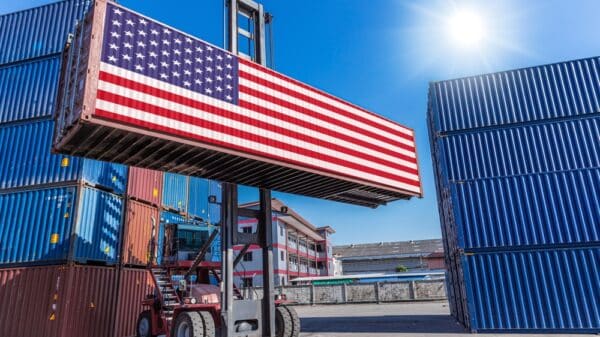Shein Group Ltd., a renowned player in the fast fashion sector, has experienced a downturn in its sales within the US market following recent policy changes implemented by the Trump administration. The revocation of a tariff exemption on small shipments, which had been instrumental in fostering Shein’s rapid growth, has led to significant alterations in its operational landscape.
The policy change, effective from August 29, put an end to the de minimis threshold that allowed duty-free entry for overseas shipments valued up to $800. As a result, Shein observed an approximate 8% drop in sales September compared to the same month in the previous year. This marked the retailer’s second lowest monthly performance in a three-year timeframe, as indicated by data from Bloomberg Second Measure, which analyzes purchases made by a representative sample of US consumers.
The Trump administration’s rationale behind this shift was to create a more equitable environment for American businesses. Founded in mainland China and now headquartered in Singapore, Shein has thrived by offering competitive pricing on products sourced from Asia. Notably, the rapid expansion led to quarterly sales nearing $10 billion during the first quarter of the year, based on a report released by Bloomberg in July.
Analysts believe the termination of the duty exemption will provide an advantage to Shein’s competitors in the fast fashion industry, such as H&M and Zara. Poonam Goyal, a Senior Analyst at Bloomberg Intelligence, pointed out, “The playing field has been levelled. That means their prices aren’t as competitive as they were in the past.” As of now, Shein has not commented on these developments.
In an initial step toward changing the de minimis policy, the White House removed the exemption earlier in May specifically for shipments originating from China. Anticipating this shift, Shein proactively adjusted its pricing—some increases being notably steep. Consequently, the firm’s US sales experienced a nearly 11% decline at that time, as per Second Measure data.
In light of these challenges, Shein has paused its plans for an initial public offering (IPO) and is working to diversify its supply chain, aiming to become less dependent on Chinese manufacturing.
Among concerned consumers is Natasha Kuliecza, a sophomore at Rutgers University and a regular Shein shopper. Due to rising prices and longer delivery timelines, she has begun exploring other shopping options such as Amazon and Target. “As a college student, I’m trying to save money with everything,” Kuliecza remarked. “So when I want more clothes, I’d rather just go the cheaper route.”





















